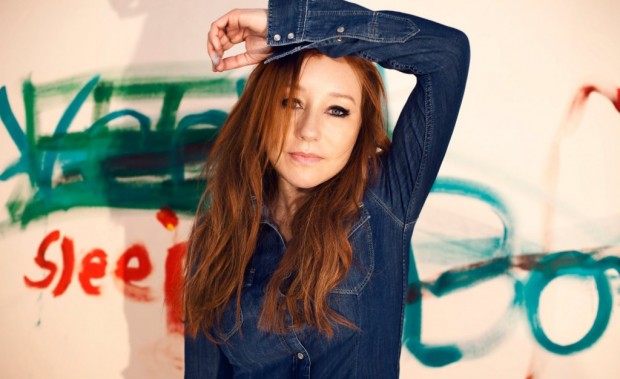
Photo by Amarpaul Kalirai / Mercury Classics
When TORI AMOS puts her fingers on the keys of her Bösendorfer, something magical happens. A perfect union, an aura of sensuality, the incarnation of passion. Discovering her love for the piano and her talent for composing as a little girl, TORI AMOS now looks back on an impressive career which includes over a dozen successful albums. Reinventing herself over and over again, she never stopped looking for new ways to express her spiritual worldview and her complex personality. Her latest album Unrepentant Geraldines has just been released via Mercury Classics and is another proof for that.
But the singer is not only an artist but also a mother. With NOTHING BUT HOPE AND PASSION she shared her thoughts about motherhood, women in our society and the power of age.
On your new record ‘Unrepentant Geraldines’ there is the song ‘Promise’ which is a beautiful duet with your thirteen-year-old daughter Tash. Did you ask her to sing or did she approach you?
I asked her. We talked about relationships with daughters and mothers and we thought about what kind of promise we could make to each other. That was the beginning.
So the conversation in the song is not a real one you had but rather a collection of your ideas?
Yes. We were also talking about what effect it has when a grown-up tries to tell a teenager the answer to everything. It doesn’t go down very well because they have to find the answer on their own.
Grown-ups can see the potential emotional car crashes that happen because of certain decisions – they have done it as well. So me and my daughter wondered how we can get to a place where the awareness of these potential consequences can be brought up without the parent ordering the teenager around and without that typical teenage tone.
I can totally see that. My mother used to say ‘don’t speak to me in that tone of voice!’
The walls come up. The verbal bombs are dropped. Nevertheless me and my daughter have a really good relationship. She is in boarding school so I am not the one that she is dealing with all the time.
Recently I spoke with CONOR OBERST about the relation between freedom and love. I think as a parent you have to deal with those things as well. You want to protect your child but you have to give it the freedom to explore the world on its own, which includes bad experiences sometimes. Is there a strategy to keep the balance?
The strategy is day to day. By now I’m more mindful how my words are perceived. I have to question myself: When I say something, what am I really saying? What is my agenda? When I’m saying ‘Oh, that is a really great short skirt. Would be great for the beach – you know, we are going to the ballet tonight’, what am I saying? It is loaded, isn’t it? She will say ‘mom, why didn’t you just say that you don’t want me to wear this skirt to go to ballet? Let’s have the conversation – no flowery poetry, okay?’



